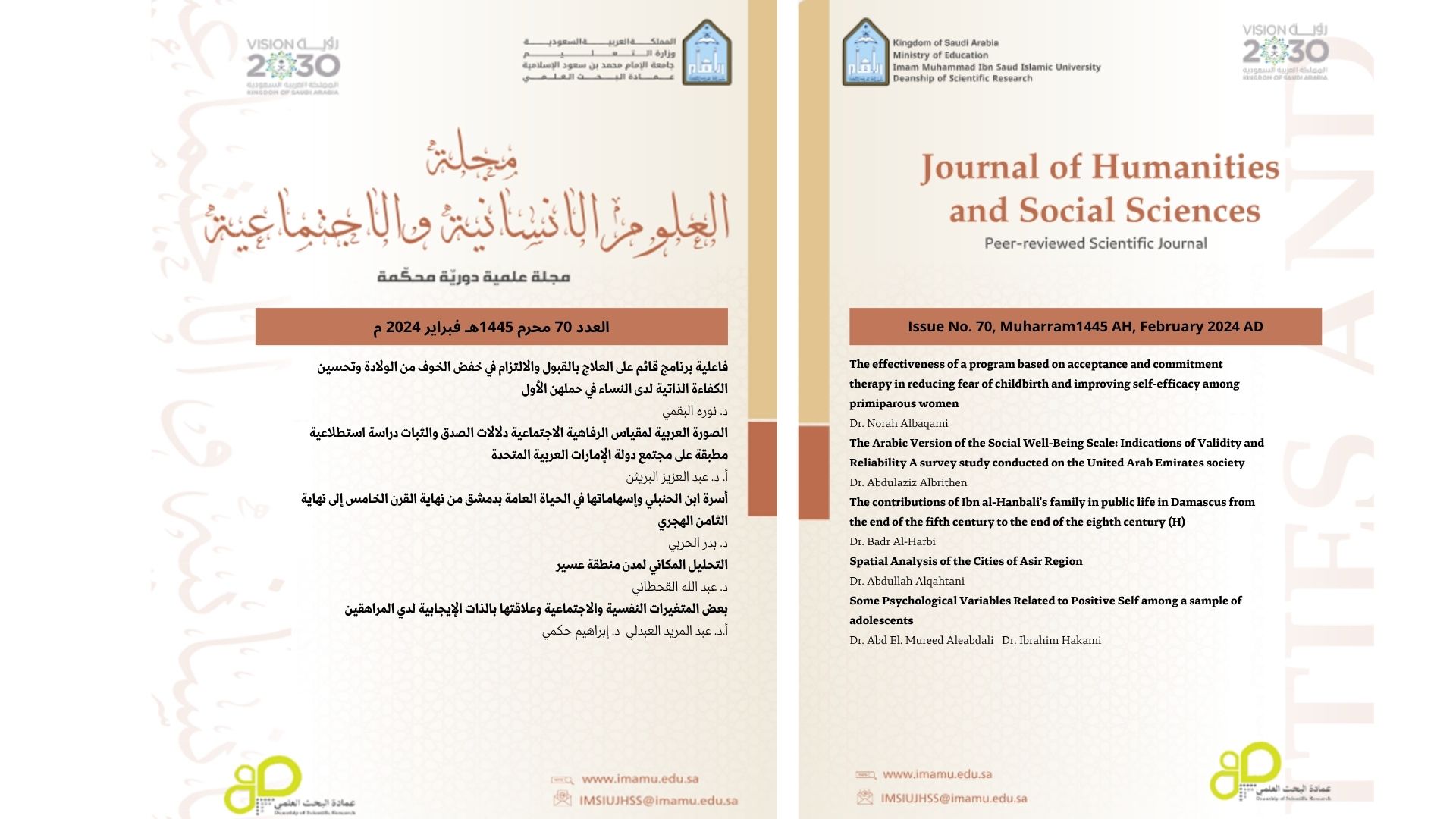The Arabic Version of the Social Well-Being Scale: Indications of Validity and Reliability
Keywords:
Social Well-Being, Arabic Culture, Validity, Reliability, Adapting MeasurementsAbstract
There is a growing sentiment that more attention should be focused this time to social well-being. Interestingly, the topic of social well-being becomes strikingly looming on the horizon, especially within the global discourses on the topic of sustainable development and its vital goals. This study focuses on the social well-being and is within the context of global attempts to adapt standardized measurements as studies have shown the quality and robustness of the Social Well-Being Scale (SWBS). This study deals with sample of adults from United Arab Emirates (UAE) society (n = 328) with the aim of adapting the SWBS to the Arabic culture. Evidence of validity was obtained through the presence of statistically significant correlations between the five dimensions of social well-being, life satisfaction, and positive and negative of quality of life. In terms of reliability, the data showed that an internal consistency was high in all dimensions of well-being. From validity and reliability perspectives, this scale is useful for assessing social well-being in Arabic culture.




